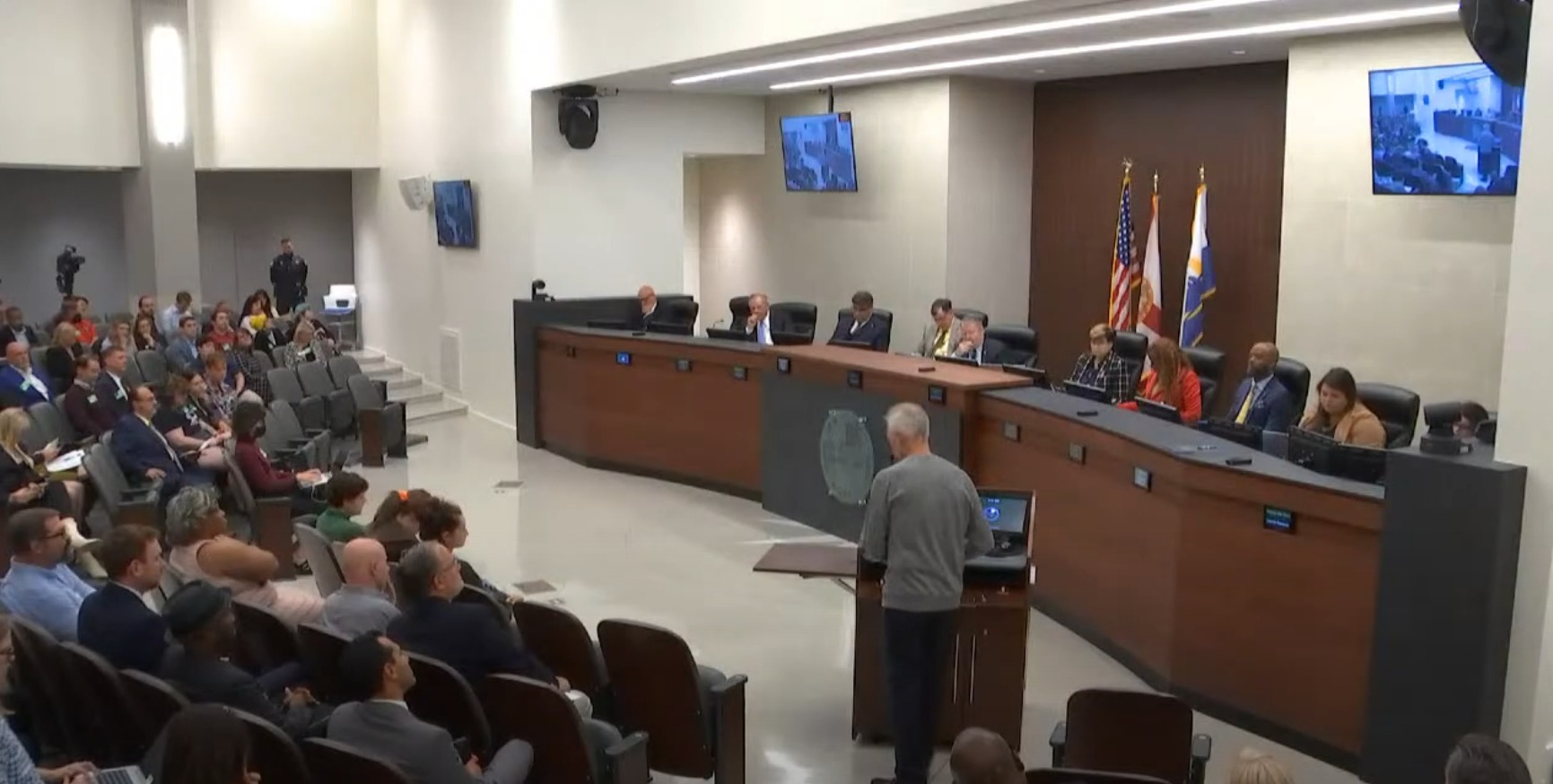Downtown Orlando Has New Nightlife Restrictions To Put An End To The Violence
The six-month moratorium is active while the second ordinance won't happen until May.


Photo Courtesy of City of Orlando / YouTube
The Orlando City Council enacted new ordinances on Monday, March 20, dampening downtown nightlife.
Orlando Police Department Chief Eric D. Smith, Chief Asst. City Attorney Alexander Karden and Acting Executive Director of the Downtown Development Board/Community Redevelopment Agency David Barilla proposed new initiatives to make the downtown nightlife safer and appease officer duties during wild weekends.
Both ordinances have been in the works since 2022 and require many modifications. The rules passed with a 5-2 vote (Commissioners Jim Gray and Tony Ortiz voted “nay”).
The first ordinance is a temporary, six-month nightclub moratorium prohibiting any new nightclub from opening
in the CRA. The other is the amended “After Midnight” ordinance that controls the alcohol-selling timeframe and unbalanced demand for police presence at nightclubs.The six-month moratorium is active, while the “After Midnight” initiative enacts in May.
These ordinances aim to combat the increasing violence that occurred downtown. However, the second initiative gained the most apprehension from council members.
The “After Midnight” rule required establishments serving alcohol to stop selling at midnight. Those wishing to sell past midnight must pay an annual fee of $250 to have a permit to sell until 2 a.m.
Furthermore, establishments with 50 or more customers must enact a hand-held (wand) security system.
With alcohol comes trouble, so establishments must also pay for police presence. The new ordinance decreased the nightly price from $540 to $265. The quantity of police at the establishment depends on the occupancy.
Clubs or bars with one to 124 occupants don’t have to pay for police presence, while those with 125-374 pay $265, and it doubles as the occupant amount increases.
Instead of six hours, extra-duty law enforcement will patrol the downtown area for five hours on Friday, Saturday and Sunday from 10:30 p.m. to 3:30 a.m.
The number of officers patrolling the downtown area went from unlimited (original proposal) to 30 per night.
Commissioner Ortiz disagreed with establishments with more occupants paying thousands for police presence while those with one to 124 get to freeload.
“I don’t find it fair that only 47 of you are paying for this and the only 33 are not paying for this,” Ortiz argued. “I think everybody should be paying. I don’t know how we got to that equation.”
Mayor Buddy Dyer disagreed with Ortiz stating that it wasn’t fair for smaller clubs or bars with only “10 people” to pay the same as a club with “700 people.”
Commissioner Gray’s solution to combating violence consisted of removing some of the bars and adding more high-end establishments.
Noncompliant businesses will receive three suspensions before facing a one-year revocation.
The “After Midnight” initiative is only an experiment and will be reviewed after 12 months.
